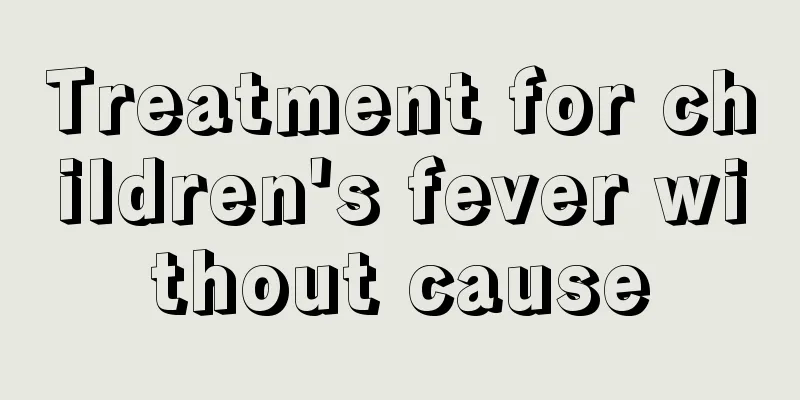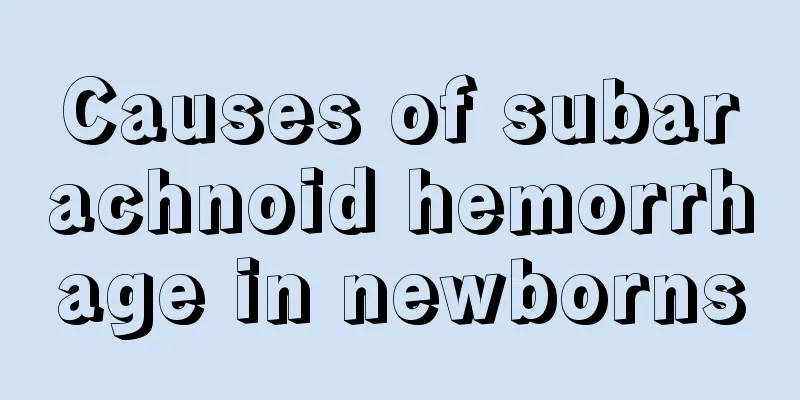What to do if a child swallows gum

|
Children have always been unable to resist sour and sweet snacks such as chewing gum. However, due to their young age, they may not know the correct way to eat chewing gum and may swallow it into their stomachs. Faced with this situation, parents should take some effective measures in time to prevent chewing gum from blocking the child's intestines. So what should we do if a child swallows chewing gum? In fact, there is no danger even if you swallow the chewing gum, because although the chewing gum contains a certain amount of gelatin, after entering the stomach and encountering gastric acid (its concentration is equivalent to HCl, i.e. hydrochloric acid), it is hydrolyzed under the action of the acid, and coupled with the action of the digestive juice - enzymes, the chewing gum is finally completely denatured and excreted from the body through normal digestive pathways. Therefore, chewing gum is generally not dangerous. The gum contained in chewing gum is mostly not digested and can be excreted from the body with feces. In addition, you can eat some crude fiber foods to stimulate intestinal peristalsis. Doctors point out that the inner wall of the human stomach and intestine is very smooth and secretes a large amount of mucus, so it is impossible for chewing gum to get stuck. If it cannot be digested after being swallowed, it will be automatically excreted without the need for surgery. Precautions for chewing gum 1. Try to choose sugar-free or xylitol chewing gum. The cariogenic bacteria in the mouth can use sucrose to produce acidic substances, which in turn corrode the teeth. Xylitol cannot be used by cariogenic bacteria and cannot provide the nutrients that bacteria need to survive. At the same time, xylitol is helpful for early-stage caries and can play a role in natural repair, thus preventing the occurrence of caries. The higher the xylitol content in chewing gum, the better the anti-caries effect. Persistently chewing gum that contains more than 50% xylitol can reduce the incidence of tooth decay by 85%. 2. Choose to chew gum after meals and snacks. After eating sugary foods and drinking drinks, the acidity of dental plaque in the mouth increases. At this time, chewing sugar-free or xylitol gum can stimulate saliva secretion, neutralize acidic substances, and help remineralize teeth. 3. Don’t chew gum for too long. If you chew gum for too long, your chewing muscles will always be in a tense state, which may lead to a habit of grinding your teeth at night. In addition, if teenagers chew gum during their physical development period, it may over-exercise the masseter muscles, stimulate the development of muscles and bones at the mandibular angle, and eventually give them a "square face", affecting the shape of women's faces. Therefore, each time you chew gum, you should limit yourself to less than a quarter of an hour. |
<<: How many days does herpes virus cure in children?
>>: Small red spots on the child's face after fever
Recommend
What to do if your three and a half year old baby is constipated
In life, many babies are prone to constipation, e...
Can children take anti-inflammatory drugs for toothache?
Toothache is a relatively common phenomenon. Not ...
Why does the child's belly button protrude?
The baby's belly button is protruding because...
What should I do if my baby has white spots on his breasts?
White spots on baby's nipples is a problem th...
What should I do if my one-year-old child has diarrhea?
If a child has diarrhea, he or she must go to the...
What can't children eat when they have a cough?
Children's physical health has always been th...
What to do if your child catches a cold in summer
Summer is very hot and people tend to sweat easil...
What to do if your child grows slowly
Many parents are concerned about whether their ch...
Three month old baby with diarrhea
It is very common for babies to have diarrhea. Ge...
What's going on with white spots on my baby's fingers?
Every baby is very cute, and parents are particul...
Newborn baby's legs shaking like cramps
If a newborn baby has cramp-like shaking in his l...
The benefits of bird's nest for children
Everyone knows that eating bird's nest is ver...
What to do if your 2-year-old baby catches a cold and vomits
During the baby's growth process, the mother ...
What should I do if my child has heatstroke and fever? Multiple ways to solve
In comparison, children are more likely to suffer...
What are complicated febrile seizures in children?
The health of children in the family may directly...









